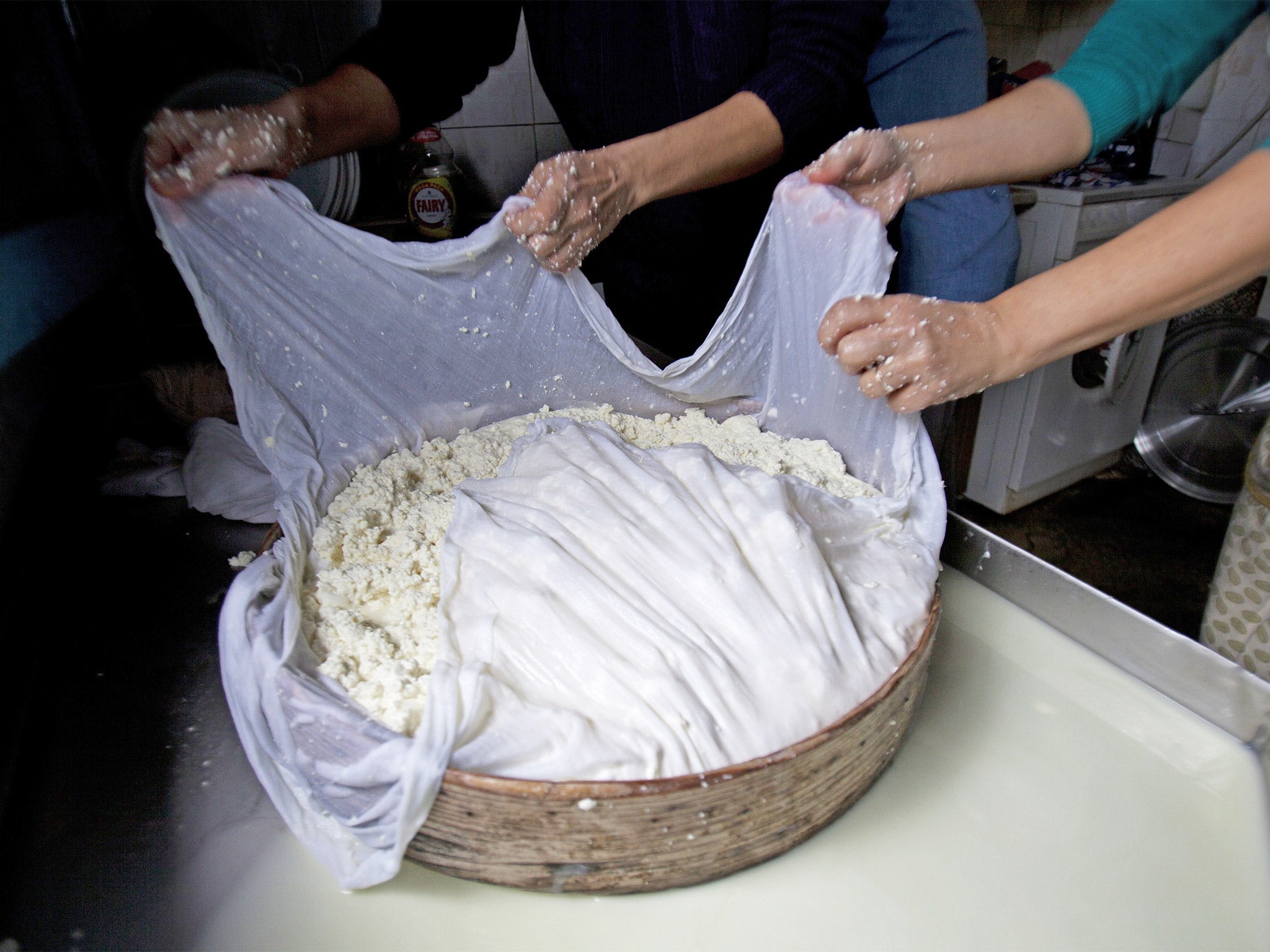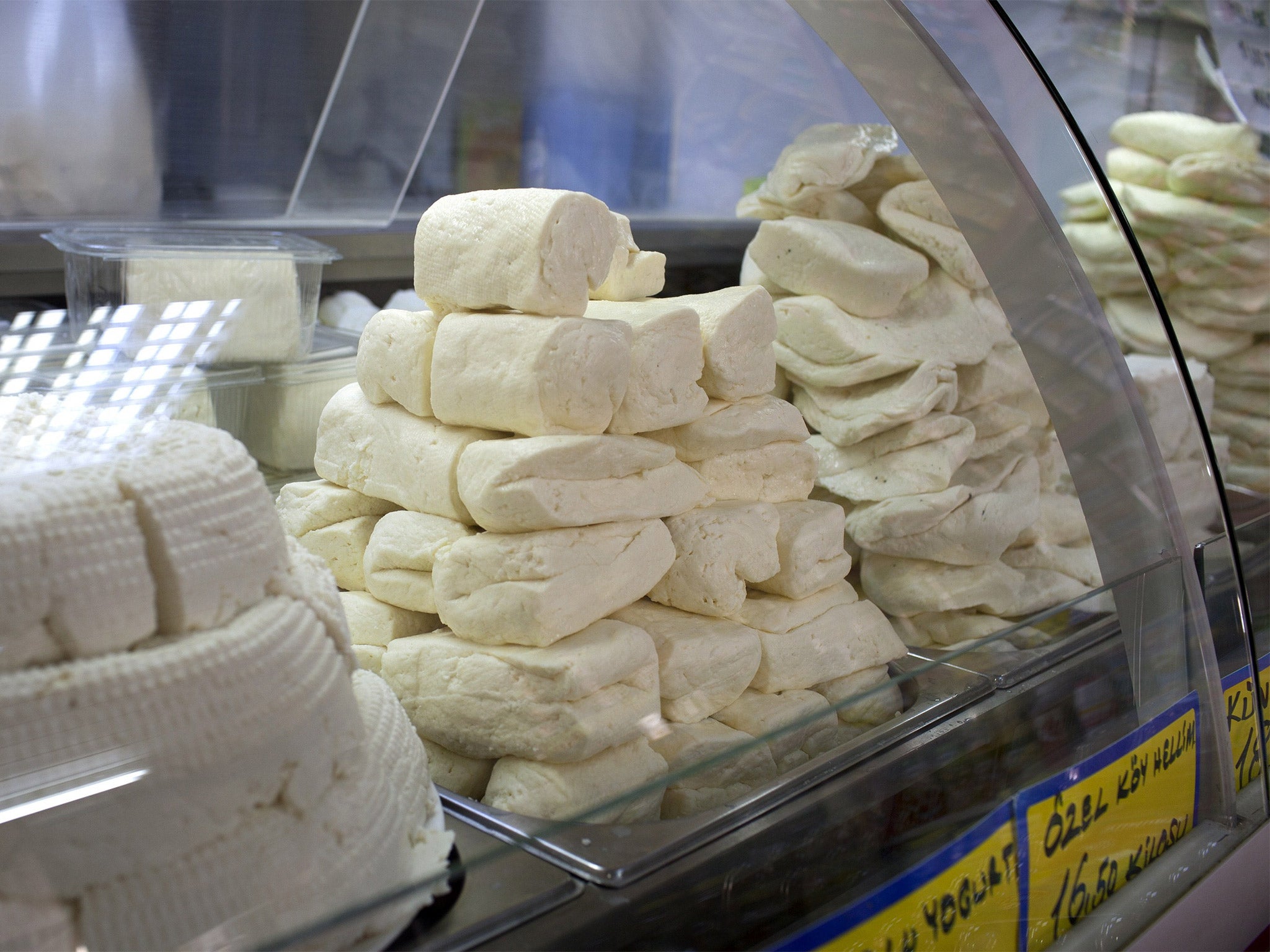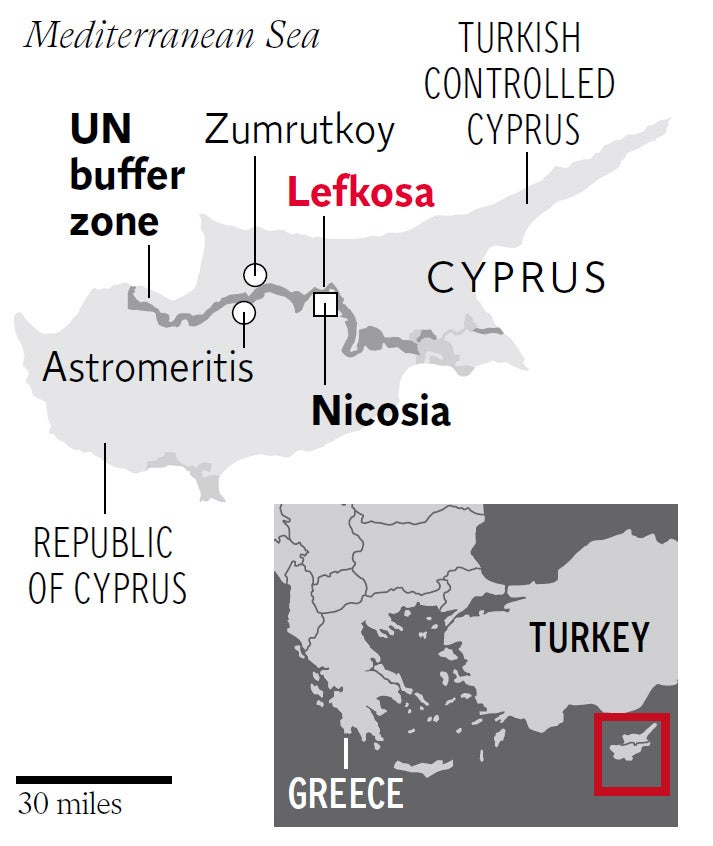Cyprus's great halloumi debate: The source of the country's latest north-south divide is... cheese
While key peace talks may be getting under way this week, there is still one major issue on which its Turkish north and Greek south are yet to agree on

Your support helps us to tell the story
From reproductive rights to climate change to Big Tech, The Independent is on the ground when the story is developing. Whether it's investigating the financials of Elon Musk's pro-Trump PAC or producing our latest documentary, 'The A Word', which shines a light on the American women fighting for reproductive rights, we know how important it is to parse out the facts from the messaging.
At such a critical moment in US history, we need reporters on the ground. Your donation allows us to keep sending journalists to speak to both sides of the story.
The Independent is trusted by Americans across the entire political spectrum. And unlike many other quality news outlets, we choose not to lock Americans out of our reporting and analysis with paywalls. We believe quality journalism should be available to everyone, paid for by those who can afford it.
Your support makes all the difference.Don’t just call it a cheese. For the people of Turkish northern Cyprus, it is an economic lifeline and a source of national pride. Grated in pasta, grilled with eggs for breakfast or raw with watermelon, hellim – or halloumi – is a national concern.
“This is the best in Cyprus,” Salih Yucesoylu says as he casts an expert eye over the production line.
The factory’s general manager adds: “Life is not possible without it. Everywhere in Cyprus we think of hellim.”
But Mr Yucesoylu’s cheese is not bound for Europe. It is only sold in Turkey and the Middle East. With the exception of Ankara, the world continues not to recognise the Turkish Republic of Northern Cyprus. “This is going to Dubai,” he says.
Even as leaders of Cyprus’s north and Greek south begin peace talks this week, the dispute over protected status for cheese continues to inflame relations. Indeed, many view the failure to resolve to protect the cheese for the common good of all Cypriots as indicative of the failure to agree peace talks.
The Greek Republic of Cyprus has resubmitted its attempt to register halloumi and hellim as a protected designation of origin (PDO) product with the European Commission. The first attempt, in 2007, ended in failure amid court cases, a German company’s trademarking of the word “hellim” and “integral problems with milk content”.

The second application has triggered fury in the north with a number of objections raised, largely based on the “impossible idea” that Greek inspectors – who cannot visit the north – could check that Turkish producers were meeting EC standards. The north calls the PDO “flawed” and expressed “frustration” at the lack of progress. It is still being examined in Brussels.
Both parties appear to agree that the PDO will allow halloumi to join Gorgonzola, Parmigiano-Reggiano and Camembert as protected cheeses only produced in a particular region, using particular processes. “It is our national product. It is very important to everyone,” says Mr Yucesoylu, 59, who has been producing hellim since he was 28 years old. “It belongs to our community – all of Cyprus. This is where it was created. We make the real hellim. We will prove this around the world. It is our duty as Cypriots in Cyprus to protect this product. I lived through the war. My father was killed in front of me. But I don’t want my children to go through the same thing. We should live as brothers.”
Mr Yucesoylu’s Koop cheese co-operative is housed in an anonymous building in Lefkosa, the Turkish north of Nicosia. It was founded in 1958, before Cyprus was divided. Some 20 local hellim makers, many women living in the village of Eycence, formed the co-operative. Today, despite the export restrictions, hellim is big business in the north, accounting for a quarter of all exports. Sixteen per cent of all Turkish Cypriots rely on the production of hellim for their living in some way. That includes 750 cow-milk producers and 1,000 sheep and goat-milk producers. As the second Greek application was submitted in 2013, in London the Foreign Office told the European Commission that its verdict on the PDO application must “ensure that its decision takes due account of inter-community relations”. Many in the north now claim that aim has not been met.
Outside Lefkosa, a vast flag of the Turkish Republic of Northern Cyprus sits on the slopes of the Kyrenia and Five Finger mountain ranges. It provocatively faces south, towards the Greeks and is brightly illuminated at night. “How happy is he who calls himself a Turk,” read the words of Ataturk, the founder of modern Turkey, on the side of the mountain.

The office of Ali Cirali, the president of the Cyprus Turkish Chamber of Industry, looks out on to the mountain. “It would benefit both communities if the name hellim or halloumi would be known all over the world as coming from Cyprus,” he says of the prospect of a PDO both sides could agree on. “It is a problem for all of Cyprus. There have always been two communities, even before ’74.”
Zumrutkoy is a village surrounded by orange, mandarin and lemon groves half an hour’s drive from Lefkosa. Fatma Garanti offers visitors home-made lemonade, hellim and the first watermelons of the season. “I am a farmer’s daughter and have been seeing this done since I was seven years old,” she says. Her traditional hellim – handmade and with mint in the middle – is among the most highly prized on the island.
“This building was once owned by a Greek Cypriot family before they were forced to move,” she says. “It is very sad. But also Turkish people were forced to move as well.”
It is estimated that 165,000 Greek Cypriots fled or were expelled from the north after 1974 and 45,000 Turkish Cypriots from the south. Compensation for those displaced remains one of the most difficult issues to resolve.
In the wilderness buffer zone between the two capitals, Nicosia and Lefkosa, on Monday night, the leaders of north and south were brought together by the UN envoy Espen Barth Eide. President Nicos Anastasiades and the reformist new Turkish Cypriot leader Mustafa Akinci will meet again later this week.
The last such talks were in 2004 when Greek Cypriots voted against Kofi Annan’s proposals for reunification. Talks have failed since, largely due to the leadership of the right-wing Turkish Cypriot President, Dervis Eroglu. Both Mr Anastasiades and Mr Akinci were in favour of the Annan plan and on Monday night agreed it was “important to use the momentum created and this new opportunity to move forward”.
“The next generation won’t know what life was like before separation but it can’t go on forever,” Ms Garanti says. “That’s why finding something we agree on is so important.”
“I hope that the conditions for a substantive dialogue will be created, which will lead to the reunification of our country,” Mr Anastasiades wrote on Twitter after the meeting. “We have good reason to be optimistic,” said the Turkish Foreign Minister Mevlut Cavusoglu on Tuesday night.
Both sides’ economies have suffered in recent years. The south has been hit hard by Greece’s debts. And Turkey has dramatically scaled back support for the north. Friday’s talks are due to centre on gas exploration off the island that could benefit both sides. But there may also be some discussion of the hellim issue.
On the menu at Monday’s breakthrough dinner, according to reports, was a salad of pomegranate and rocket. Served with it was a cheese. Not this time hellim or halloumi, but the less diplomatically sensitive, and certainly less chewy, mozzarella.
Join our commenting forum
Join thought-provoking conversations, follow other Independent readers and see their replies
Comments